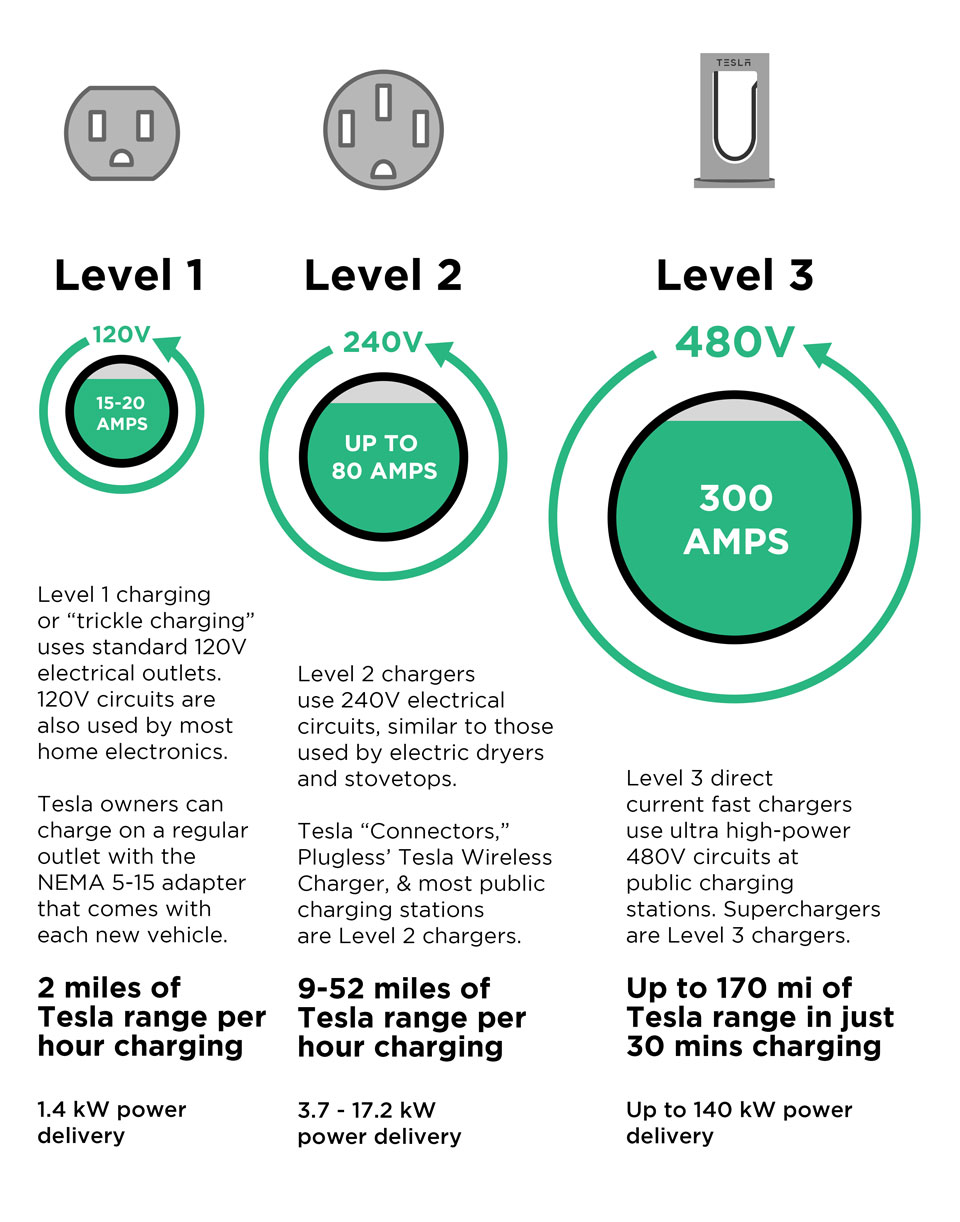
Many drivers have wondered how much electricity an electrified car uses. Although the mileage of an electric car will vary from one vehicle to the next, the fuel efficiency is generally comparable to a traditional gas-powered vehicle. A battery-powered car's cost of operation, maintenance and repairs, is often less than a traditional car.
You will need to determine the kWh rate for your region in order to calculate how much electric power your vehicle consumes. Electricity costs vary from one region to the next in the majority of the country. Depending upon where you live, the cost of electricity can be anywhere from a few pennies to over one dollar per kilowatthour. If your local power provider offers discounts for plug-in vehicles, you can make the most of your electricity bills. Solar panels installed on your home can reduce your energy costs.

You can find information on the cost of electric vehicles at the Department of Energy's Alternative Fuels Data Center. This includes information about popular models, battery sizes, and tips for finding the best charging station. You can also use the calculator on the site to calculate how many kilowatts your EV receives from the grid. You can also find a handy tool called the Alternative Fuels Data Center Locator Tool that will show you where your vehicle can be plugged in.
Modern electric vehicles have one thing that is more impressive than the others: they can be powered by renewable energy. This means that you don’t have to worry as much about tailpipe emissions as gasoline-powered cars. Another important factor is the predictability of electricity over gasoline. This decreases the risk of an accident. Tax credits and other incentives are available to encourage the purchase of an electric car. Eligible electric vehicles are eligible for a federal tax credit of $7,500
Although the cost per mile of electricity is straightforward to work out, there are other factors that you need to take into account. An electric vehicle costs between 30-60 dollars per monthly depending on how frequently it is used, and where you live. The average household is estimated to consume about 20 to 100 kWh of electricity each day. However, depending on your family's lifestyle and a variety of other variables, this may not be a realistic estimate.

Your house is generally the most cost-effective place to charge an EV. A home charge for a 24 kWh battery costs only a couple dollars. A 50-kWh battery will cost about five. However, public charging stations do not charge this fee. The fee for parking your car at a charging point could cost you anywhere from two to seven dollars. Many utilities offer discounts to customers with plug-in cars.
FAQ
What qualifications do I need to be a truck mechanic?
Although you don't need to have any formal qualifications, your experience working with trucks and engines is invaluable. You are a valuable asset as you can quickly diagnose and solve problems efficiently.
Your knowledge of diesel technology will allow you to identify the parts that are required to fix our vehicles.
Is it worthwhile to become a mechanic?
The answer to this question depends on what you want from life if you are looking for money, then yes, but if you're looking for meaning and purpose, then no.
If you don't have any mechanics skills, then there's no point getting into it because you'll just end up wasting time. It's not going make you millionaire. It will not make you famous. It is unlikely that your life will change.
You'd need to spend years learning how everything works. It would be expensive to have your car fixed by someone else. Most people avoid doing this. They find something they enjoy instead.
In conclusion, if money is your main goal, you should go ahead. If you are looking for a fulfilling life, however, then stay clear of the mechanics' industry.
Does it matter what college I go to?
You're wrong. There's no difference between colleges regarding getting into the automotive industry. You will find that some schools offer better programs than others. If you are looking for something more specific, consider going to another school.
How do I prepare to be a mechanic apprentice?
It is important that you understand the ramifications of your actions. It is important to know the basics of how cars work. This will make it easy to find the right place to start your first day in the garage.
You should also know how to fix common problems such as tires or broken lights.
This will teach you how to diagnose problems and fix them yourself.
You'll also need to know how different parts fit together to put them back together again.
Finally, you need to be able to safely and efficiently use tools.
These things will enable you to be a competent mechanic.
What kind of car mechanic jobs exists?
There are three main areas of employment for car mechanics:
-
Automotive repair shops
-
Dealerships
-
Independent garages
Automotive repair shops
This is the place most people begin to consider becoming mechanics. It's actually the easiest way to start. Either work for someone else's shop or you can start your own.
If you plan to work in a shop, you must apply to join the union. Once accepted into the union you will be trained by the union.
Once the training is completed, you can start working.
If you decide to open your own garage, you'll need to register with the government. After you have registered, you will need to meet certain standards.
Once you register, you'll receive a license that allows you to operate your garage.
You can sell spare parts or do minor repairs with your license. It won't permit you to fix serious engine problems.
Customers will expect you to not only sell spare parts but also provide advice and guidance.
Dealership jobs
Most dealerships employ mechanics who can specialize in a particular area of the car. For example, they might only deal with brakes or only replace tires.
Some dealerships have the option to hire general mechanics who can take care of all aspects.
Some positions require that applicants complete training before they can be allowed to work. Employers can then choose the best candidates for their job.
Some dealerships will hire graduates straight from college. These graduates are familiar with the fundamentals of mechanical engineering so they can easily learn about cars.
Independent garages
Independent garages don't belong to any particular dealership. Instead, they tend to focus on providing high-quality service.
Independent garages don't have to be associated with any particular company. This allows them to offer higher wages. This makes them generally more well-paid than jobs at dealerships.
Independent garages can be just as good places to work, but this does not mean they are better. Many business owners prefer to be in control of their businesses than to delegate it to employees.
This could lead to you working long hours with little control over your day.
It is also possible to expect lower wages than you would if working at a dealer.
There are many jobs that can be switched between. If you want to work at a dealership, then you simply need to ask your current employer if he would consider hiring you as a mechanic instead.
If you prefer to work in an independent garage, you might consider applying directly to its owner.
It's not always easy to find a job. Many other factors can also influence the amount you earn.
This could include the type of vehicle that you are working on and whether or not you charge an additional for labor.
Statistics
- The U.S. Bureau of Labor Statistics (BLS) reports that the job outlook for automotive service technicians and mechanics is expected to decline by 4% from 2019 to 2029. (indeed.com)
- According to the BLS, total auto technician employment is expected to exceed 705,000 by 2030. (uti.edu)
- 52% of Mechanics in the United States think their salaries are enough for the cost of living in their area. (indeed.com)
External Links
How To
How to correctly diagnose your vehicle for repairs
The symptoms of your vehicle are the first thing you need to look at in order to determine whether it is in dire need of repairs. These steps will help you diagnose your car properly.
-
Check engine lights. Make sure to check all dashboard indicators like the engine light indicator (oil pressure gauge), the battery indicator (battery light indicator), and the RPM indicator (rpm gauge). If they have been flashing for more days than usual, it could be a sign that something is wrong with the vehicle.
-
Inspect the tire treads. Tires can become worn and cause problems in handling and braking. You should also inspect the wheel treads. They should look clean and be smooth. You can do this by taking off the wheels. You can check the tread wear with a flashlight.
-
Monitor the level and consistency of your brake fluid. Keep track of the brake fluid level in your vehicle. This ensures that your brakes work properly. Low brake fluid levels could cause your brakes to fail when you apply pressure.
-
The suspension system should be tested. Vehicles usually have a suspension system that helps absorb shocks and vibrations while driving. It gives you better control and allows for smoother accelerations and decelerations. If your vehicle has a suspension problem, it might feel wobbly or shake uncontrollably. You can test if your vehicle has a suspension problem by putting weight on either the front or back axle to see how it moves.
-
Take a look at the steering column. The steering columns are what connect the steering knob to the rest. Accidents often damage steering columns. If yours feels loose or shaky, you should replace it.
-
Pay attention to the exhaust pipe. The exhaust pipes are responsible for moving gases from the combustion chamber into the atmosphere. You can let harmful fumes into your home if your exhaust pipes crack or leak. Also, if your tailpipe is bent, you should fix it immediately.
-
Take a look under your hood. If you see anything unusual, take a look under the hood. Your engine could be leaking fluids. In addition, if you notice an unusual smell coming from your engine compartment, you should contact a professional technician.
-
The air filter should be checked. Your vehicle's air filter collects dust and debris from the outside environment. A dirty air filter causes your vehicle to run poorly. Replace your air filter regularly.
-
Check the fan belt. Your vehicle's fan belt connects the engine to the transmission. The engine will not turn if the fan belt breaks. It is easy to replace the belt. You will need a screwdriver, pliers and a pair of pliers.
-
Make sure you inspect the radiator hoses and hoses. The radiator hose is used to carry water from the radiator to your engine. It can crack or become damaged and leak hot liquid onto an engine. The hose can be repaired with a pair or needle-nosepliers, and a wire brush.
-
Check the windshield wipers. Windshield wipers use electricity to wipe away rain and snow. If they stop working, streaks could be left on your glass. Simply change the washer oil to fix the problem.
-
The battery cables should be checked. The battery cables supply power to your car's electrical systems. Always disconnect the negative wire before you replace batteries. Failure to do so can damage your alternator.
-
Be sure to check your headlights. Headlights help you see the road ahead. Poor visibility can result if the headlights don't function properly. To determine if your bulbs are out of date, check them.
-
Pay attention to the lights. You can warn other drivers if you approach them at night. You could be distracted and cause an accident if one does not work.
-
You should inspect your brakes. Before you collide with another vehicle, brakes will slow down the car. If your brakes aren't working properly, you may lose control and crash into other cars.
-
Make sure to change the oil. Oil keeps your engine lubricated. It helps keep metal parts from getting too worn down. It is recommended to change the oil each month.